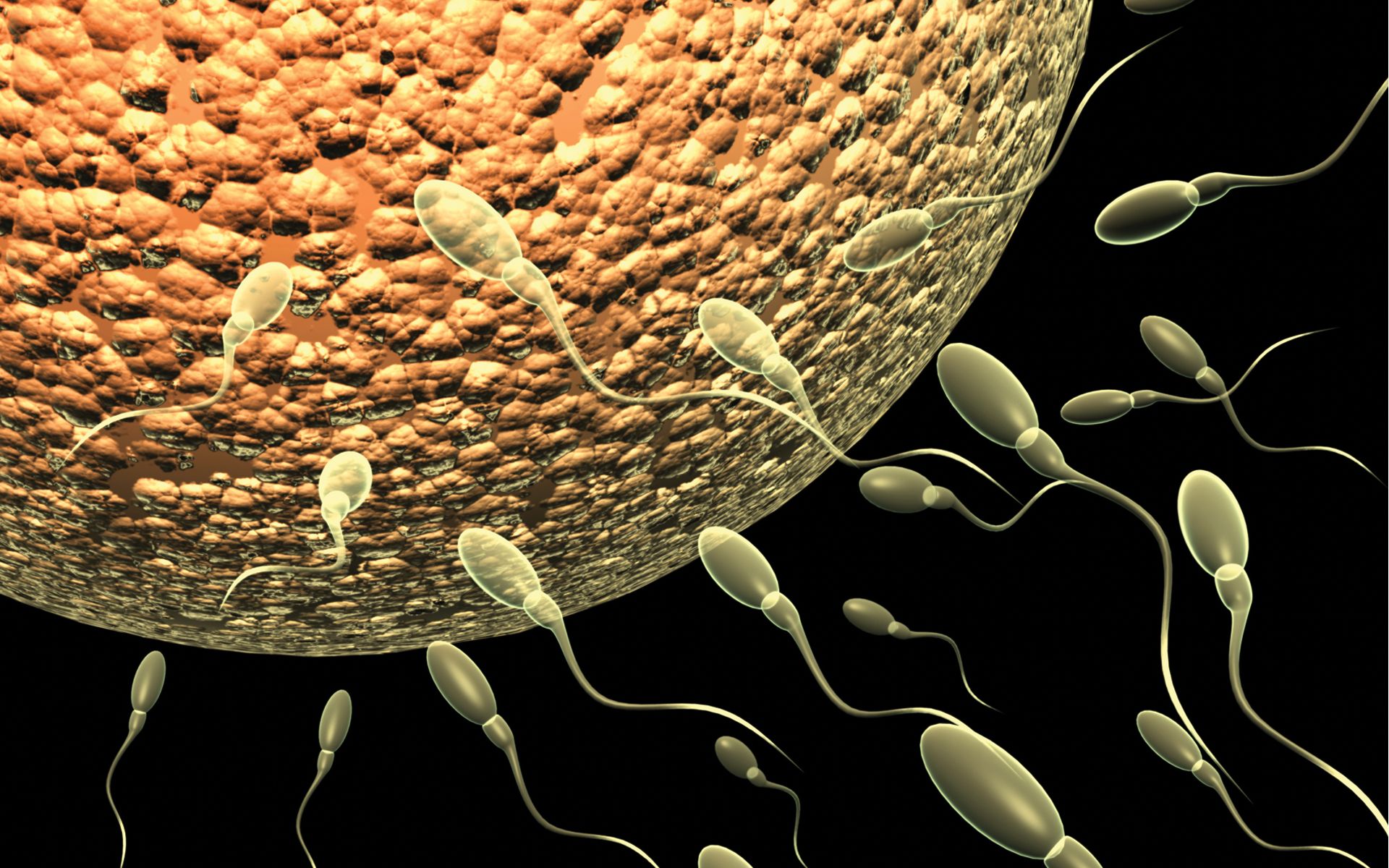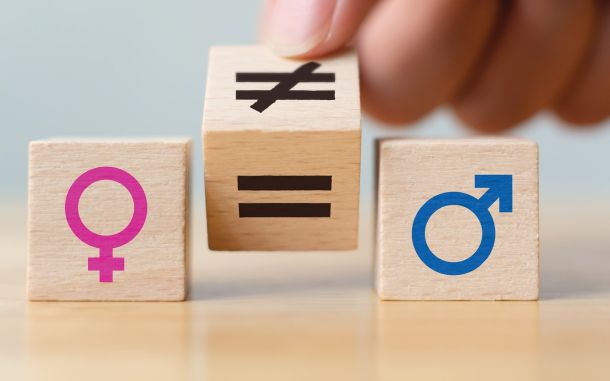How Probable Is Your Being “You”?

In This Article
-
When we consider all the causal factors that play a role to result in “life,” the probability of us being who we are is a very low probability.
-
Thinking of all the complicated probability calculations, we can only conclude how precious each human being is.
-
Considering all the probabilities, the chance of a baby coming into the world healthy is much lower than the chance of coming into the world unhealthy.
Sometimes unexpected things happen to us in life. We encounter situations that have almost no place in probability calculations. It’s like when the evil Star Wars character Darth Vader declares to the heroic Luke Skywalker, “I am your father.” The revelation is unexpected, and audiences are surprised.
Sometimes, life can feel that way.
This scenario can have different connotations for everyone, and it reminded me of a classical physics question. Suppose you pour a glass of tap water into the ocean. If you think about the size of the ocean, you will also imagine that a glass of water will disappear in it immediately. Five years later, fill a glass of water from another ocean shore on the other side of the world. The question is this: how many water molecules in the second glass came from the first glass? Assuming that there are around a billion cubic kilometers of water in all the world's oceans, a glass of water is nothing compared to this total volume. Or, to put it mathematically, the probability of a molecule from the first glass being in the second glass is two chances in 1 followed by twenty-two zeros.
But then, there are an incredible number of molecules in a glass of water: they can have molecules totaling 1 followed by twenty-five zeros. Assume that a thousand molecules from the first glass are in the second. The probability decreases to only two out of 1019. That is still practically impossible. Going back to Star Wars, what is the probability that the enemy you encounter in the whole galaxy is your father?
We'd be surprised at the possibility that Darth Vader is Luke's father, but we wouldn't be surprised at the birth of a baby. The fact that four babies are born every second all over the world is important here. However, the probability of a baby being born is much lower than that Darth Vader is Luke's father.
Let's think of an ordinary person; his name is Joe, and Joe has 46 chromosomes like everyone else. Otherwise, there would be an anomaly in Joe, and then Joe would not be an ordinary person. As everyone remembers from basic biology classes, half of Joe's chromosomes miraculously come from his mother (Mary) and half from his father (Jacob). Let's not forget that his parents, like Joe, have 46 chromosomes from 23 pairs each. Thus, one of the chromosome pairs of each of his parents was chosen for Joe. Twenty-three chromosomes from both sides form the building blocks of Joe.
If the probability of 23 chromosomes coming from his mother is calculated, the number (0.5)23 is obtained. How so? Well, the probability of a chromosome being selected is one in two. There are 23 pairs of chromosomes; Since the probability of being selected from the first couple is ½, the probability of being selected from the second couple is ½, the probability of being selected from the third couple is ½, and the probability of being selected from the fourth couple is ½, the probability of 23 independent events is calculated: as 1/2 x 1/2 x 1/2…1/2= (1 /2)23. This calculation means that the probability of being Joe with the chromosomes from his mother is about one in ten million. This probability is equal to a big jackpot for a single ticket purchased in the national lottery.
The same probability applies to the father's side, too. Then the probability of being Joe by chance drops to one in a hundred trillion this time. 107 x 107 = 1014 or 1 in 100,000,000,000,000. As such, the probability of Joe being born as the Joe we know is 107 times more difficult than winning the jackpot in a single ticket from the national lottery. In other words, the probability of Joe is ten million times less than winning the national lottery jackpot.
Let's imagine that Mary and Jacob met in a medium-sized settlement where there is a population of at least 10,000 men and 10,000 women. Then the odds of meeting these two people would be one in ten thousand. The probability calculations for Joe's birth then fall to one in one quintillion. The fertilization of the mother's egg can only be achieved through an average of 15 million sperm. This situation gradually decreases the probability of Joe being born: 15 x 106 x 1018 = 15 x 1024—or, one chance in fifteen septillion.
Joe's mother did not come down from out of space. The probability of Joe's mother, Mary, is also one in 15 Septillion. Identically, if we consider that the probability of his father is the same, the probability of being Joe is 225 x 1024 x 1024. One in 225 Kendecillion.
Here I must add: all assumptions take place in ideal circumstances. Before knowing each other, the possibilities of the mother or father's death, the infertility of one or both, and the like are not included. The probability is very, very low, but must not be ignored.
Mary's parents or Jacob's parents and their families—and their families—and all other previous families must have existed since the beginning of human life. When you consider all the possibilities, the probability becomes sooooo infinitesimal. To describe such a possibility, we can only call it a probability in infinity. This possibility is valid for every ordinary Joe. Considering that there are 7 billion people in line, it is not difficult to say that life is a miracle of creation.
The last estimated human population in the world is about 7.7 billion. Considering that four babies are born every second and two people die (according to the data in 2019), it can be predicted that the human population will increase day by day. Thinking of this complicated probability calculations, we can only conclude how precious each human being is.
People have better understood the value of life during these COVID times. Since spring 2020, nearly a million Americans have died from COVID, leaving many millions grieving. A March 2021 poll from the Associated Press–NORC (AP-NORC) Center for Public Affairs Research found that about 20 percent of people surveyed in the U.S. had lost a relative or close friend to COVID. That means a potential bereaved population of about 65 million. That number has certainly increased. Death also reminds us that life is precious, as each birth is a unique gift. Again, considering all the probabilities, the chance of a baby coming into the world healthy is much lower than the chance of coming into the world unhealthy.
The large human population is not evidence of the simplicity and mediocrity of life but rather the perfection in the creation of the universe. When considering this, it is undeniable that there is a hand of power in this magnificent functioning. Is it a coincidence, or are we living and breathing in a superb and controlled system?
And should you attempt to count God's blessings, you could not compute them. God is indeed All-Forgiving, All-Compassionate (16:18)

Source: https://www.medindia.net/patients/calculators/worldpopulation.asp









